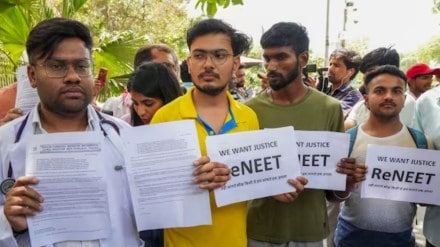The newly established high-level committee by the Ministry of Education, aimed at ensuring the transparent and smooth conduct of examinations by the National Testing Agency (NTA), has made its initial focus clear. Led by former ISRO chairman K Radhakrishnan, the committee’s first priority is to gather concerns and suggestions from parents and students.
In the committee’s inaugural meeting on Monday, the seven-member panel decided to consolidate feedback received over the next two weeks. “Our first priority is to elicit concerns and suggestions from students and parents across the country. We will engage with them through in-person meetings and electronic media. In the next fortnight, we plan to consolidate this feedback,” Radhakrishnan told DD News.
Radhakrishnan also emphasized the committee’s goal to quickly establish a robust testing system. “We aim to develop a tamper-proof, zero-error system that reduces stress for students and includes adequate flexibility,” he added.
The committee was constituted on Saturday and includes esteemed members such as Dr. Randeep Guleria, former director of AIIMS; Professor B J Rao, Vice Chancellor of Central University of Hyderabad; Professor Ramamurthy K, Professor Emeritus, Department of Civil Engineering at IIT Madras; Professor Aditya Mittal, Dean of Student Affairs at IIT Delhi; Govind Jaiswal, Joint Secretary at the Ministry of Education; and Pankaj Bansal, co-founder of PeopleStrong and Board Member of Karmayogi Bharat.
The formation of this committee follows a controversy involving a NEET-UG paper leak and a subsequent retest for 1563 candidates who received grace marks due to a ‘loss of time’ during the May exam. Additionally, three other public exams — UGC-NET, CSIR-UGC NET, and NEET-PG — have been either cancelled or postponed.
Last week, Education Minister Dharmendra Pradhan announced the creation of the high-level panel to review the NTA’s examination processes. The committee is expected to submit its report to the Ministry within two months, providing recommendations on three key areas: reforming the examination process, enhancing data security protocols, and evaluating the structure and functioning of the NTA.
